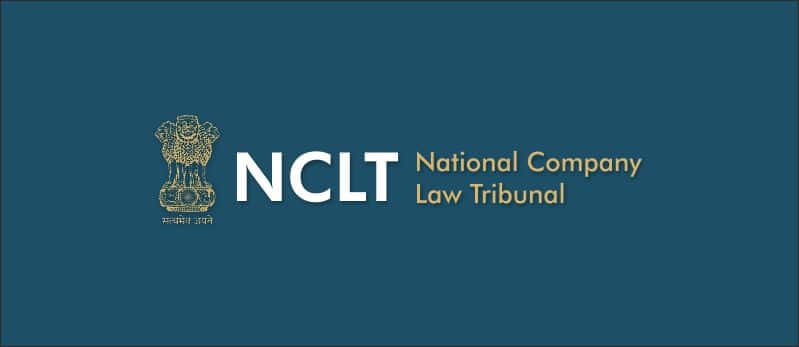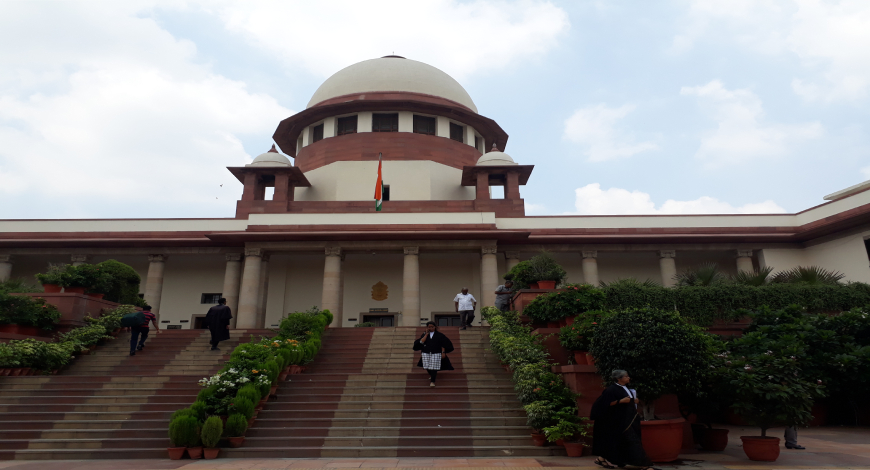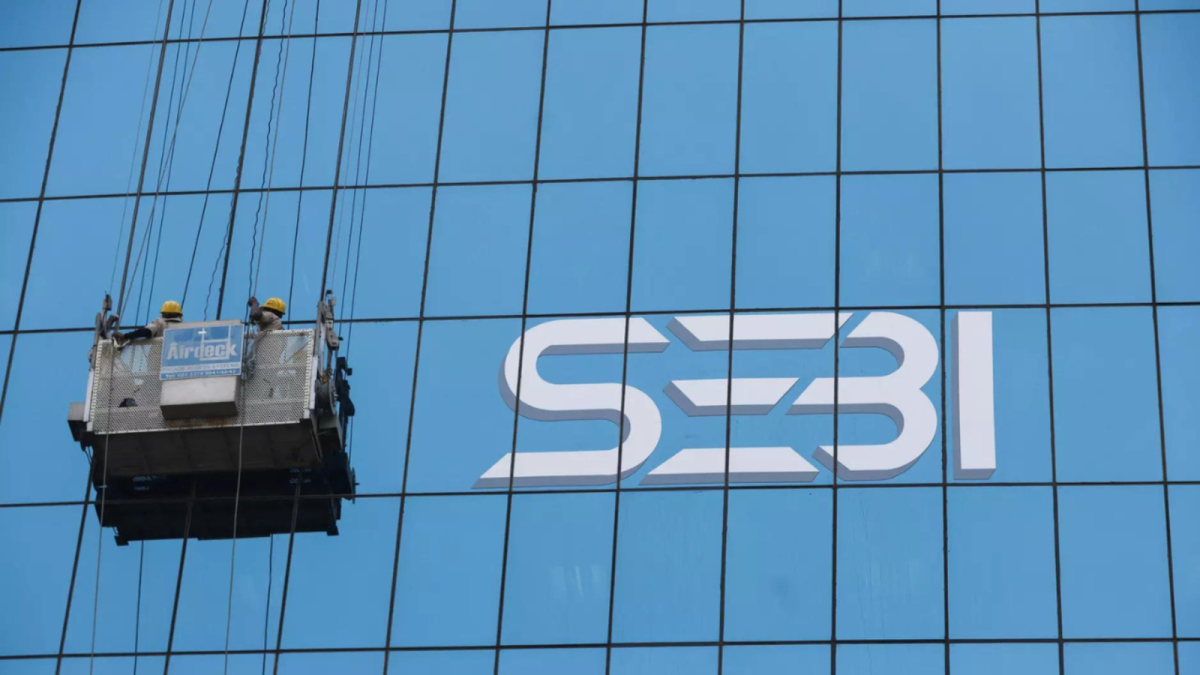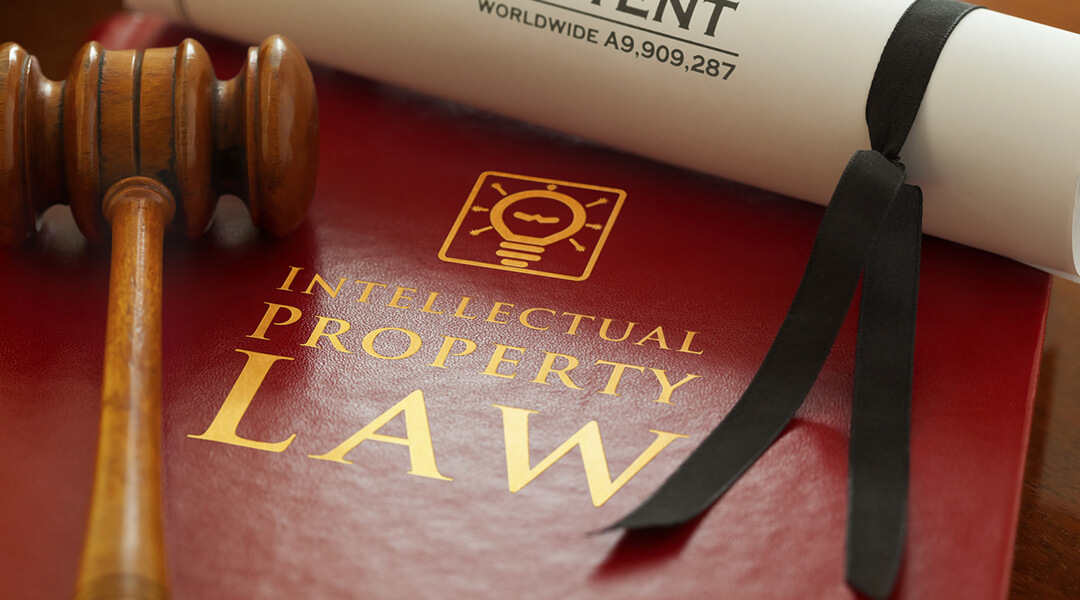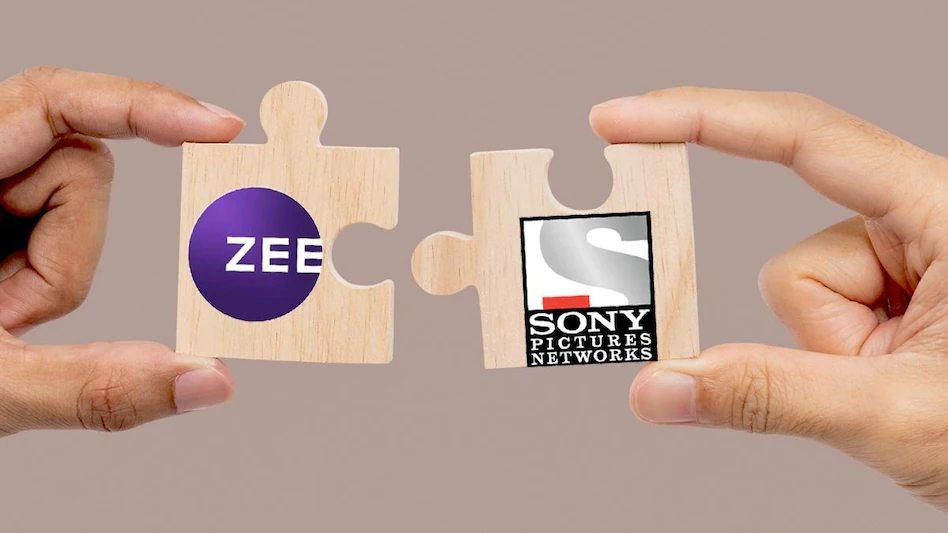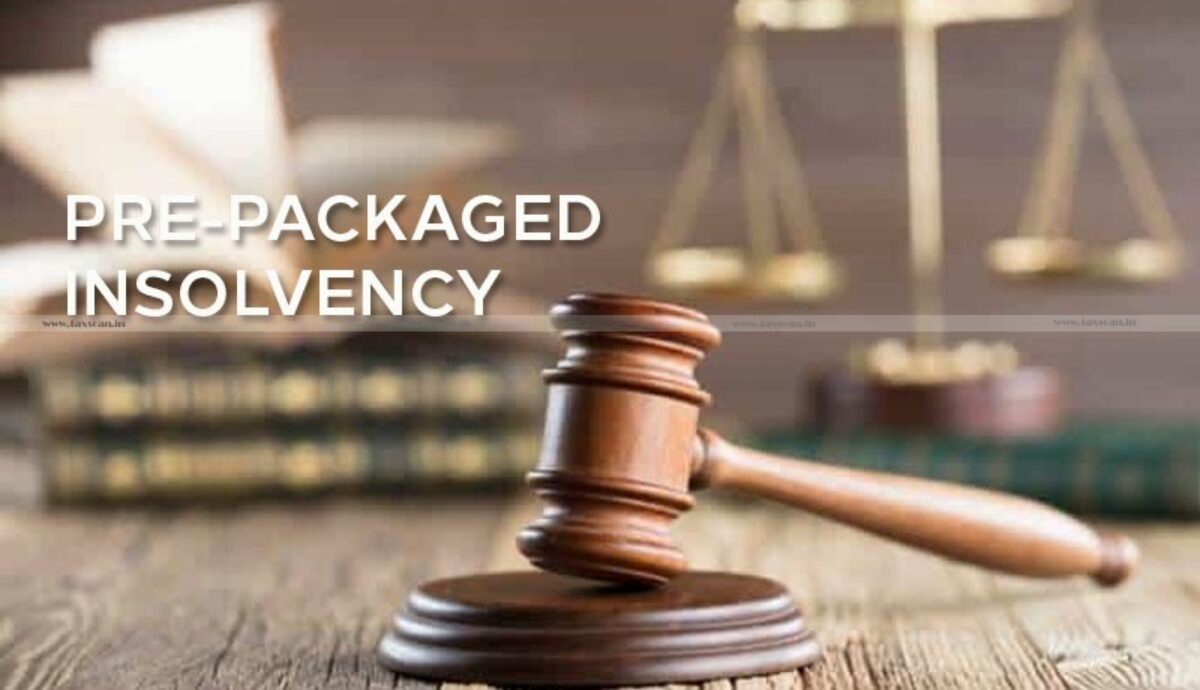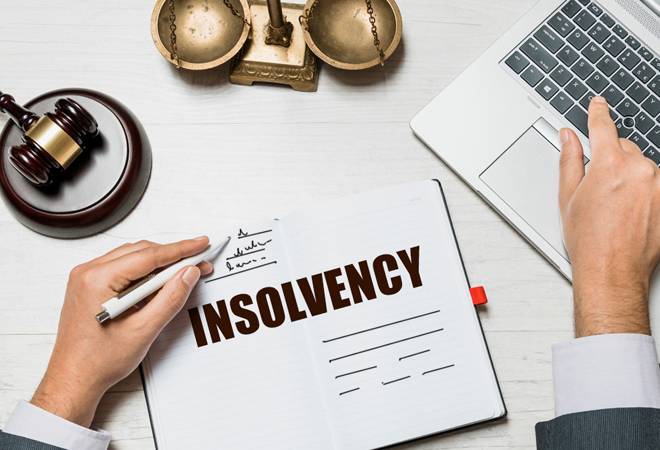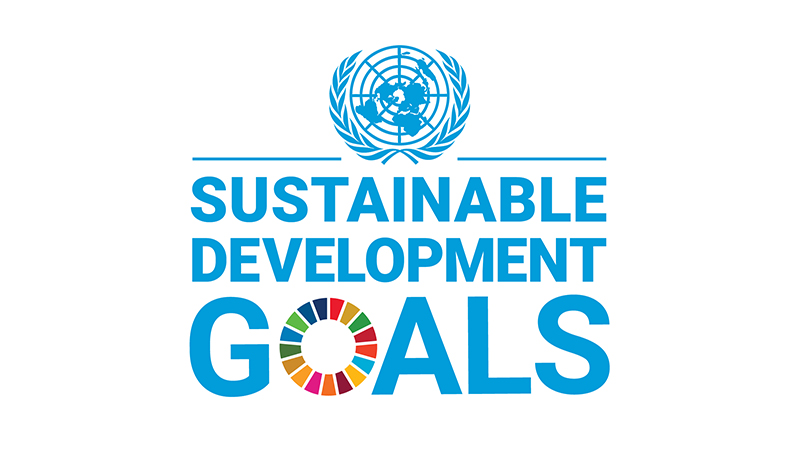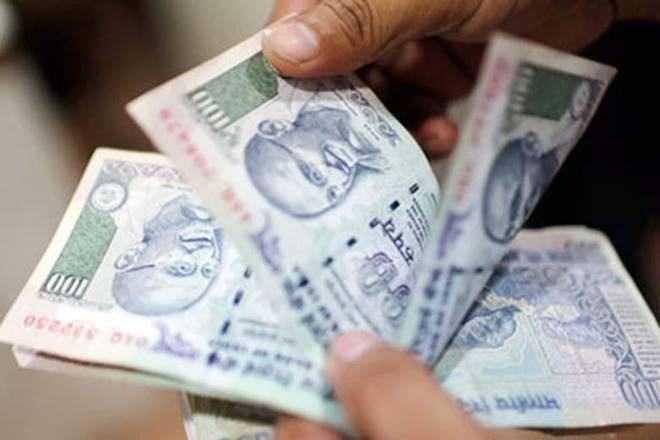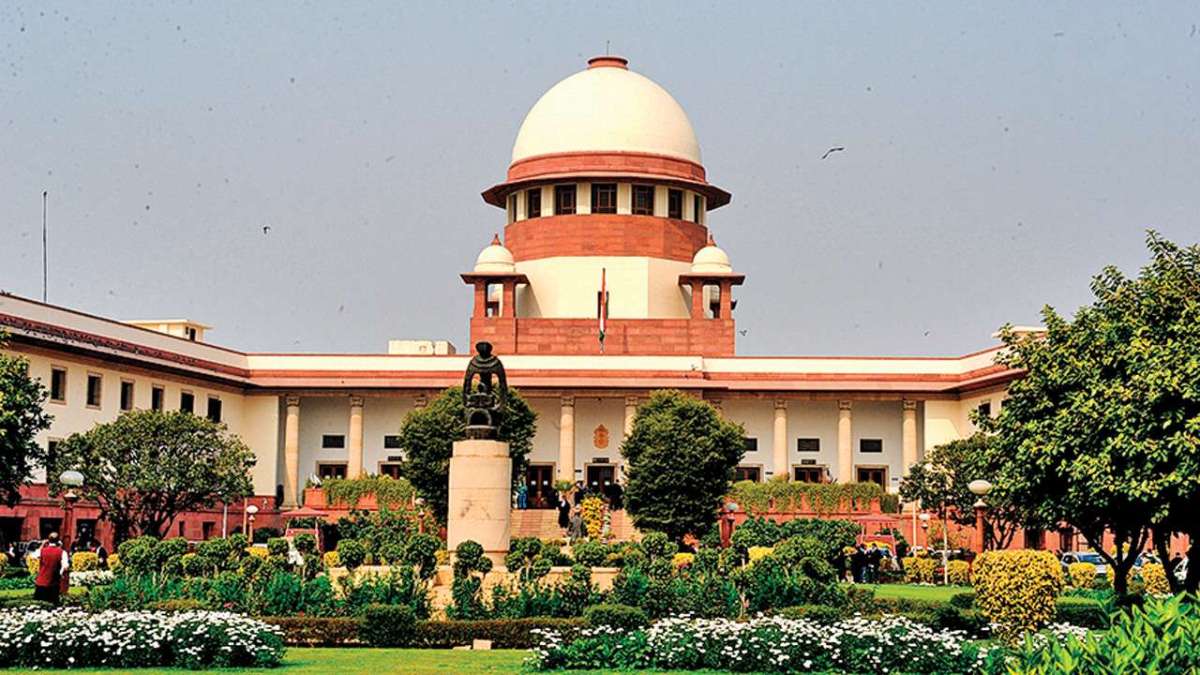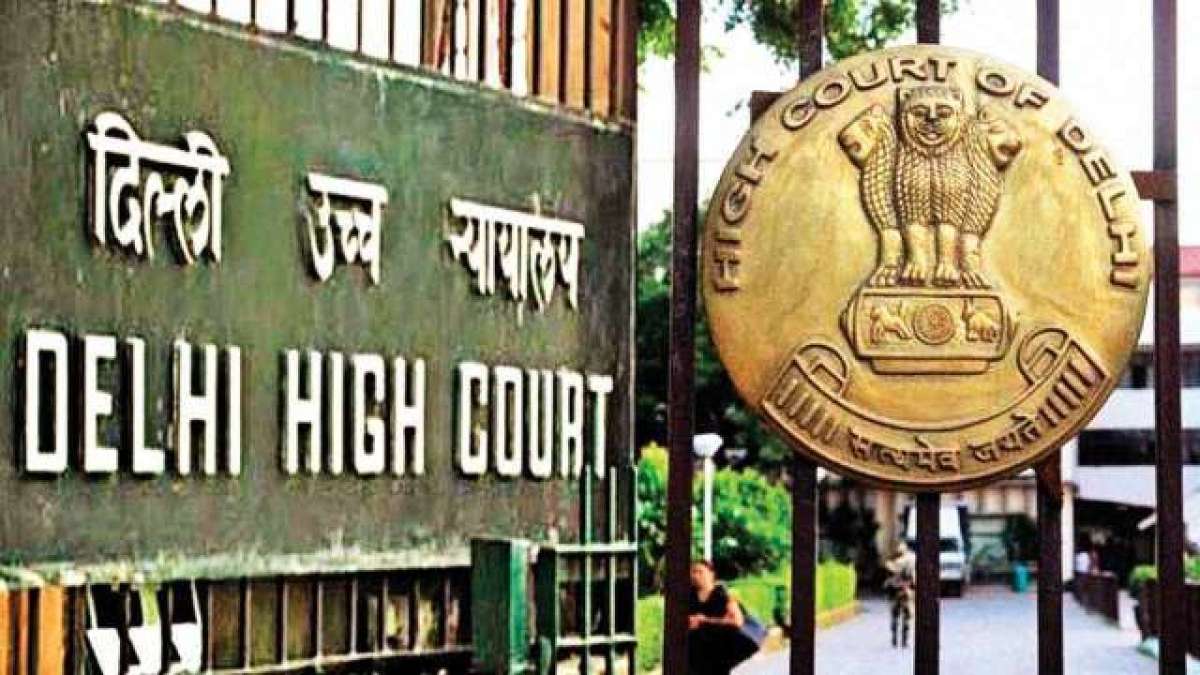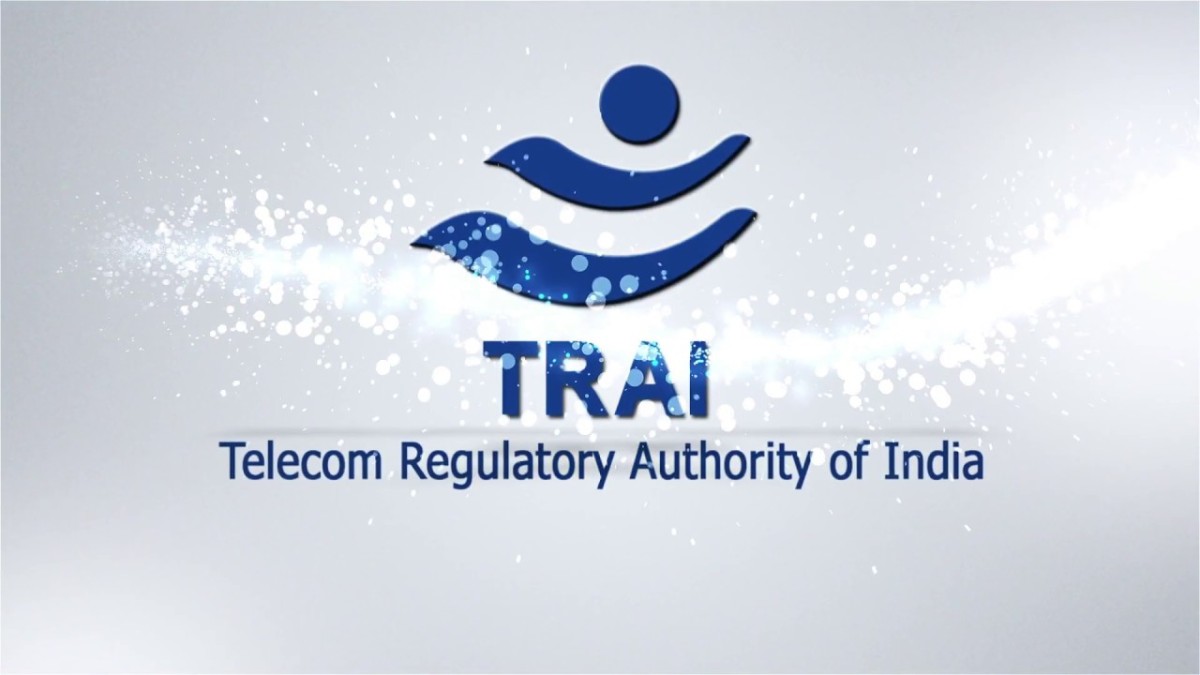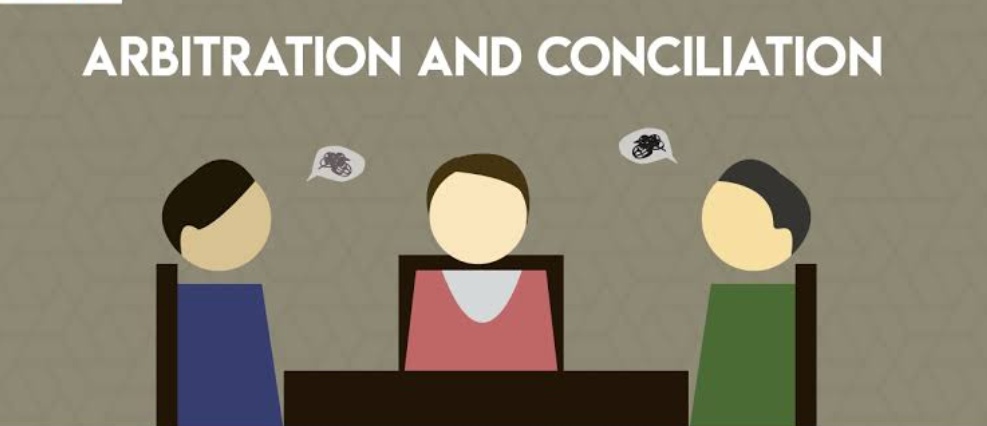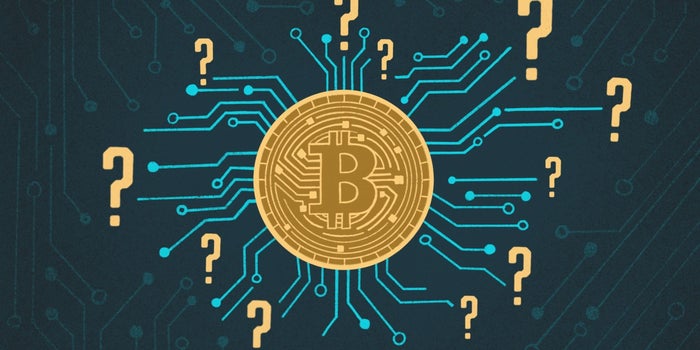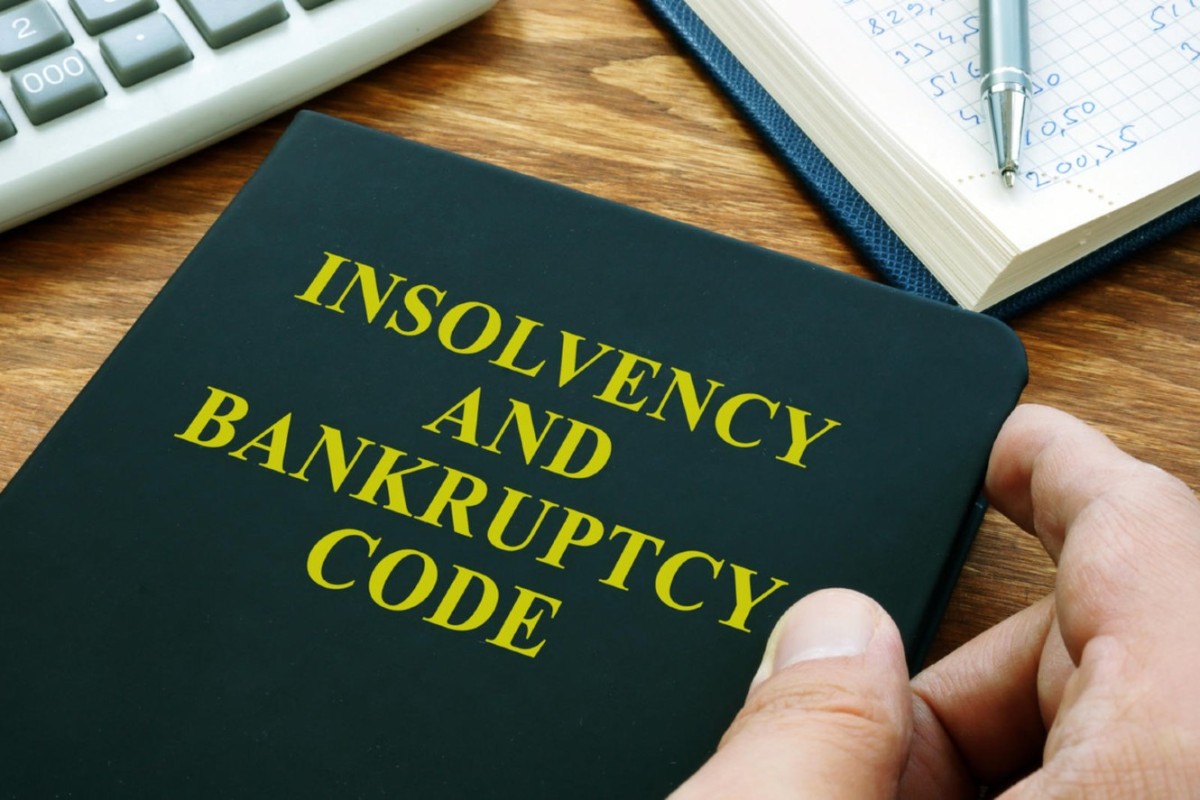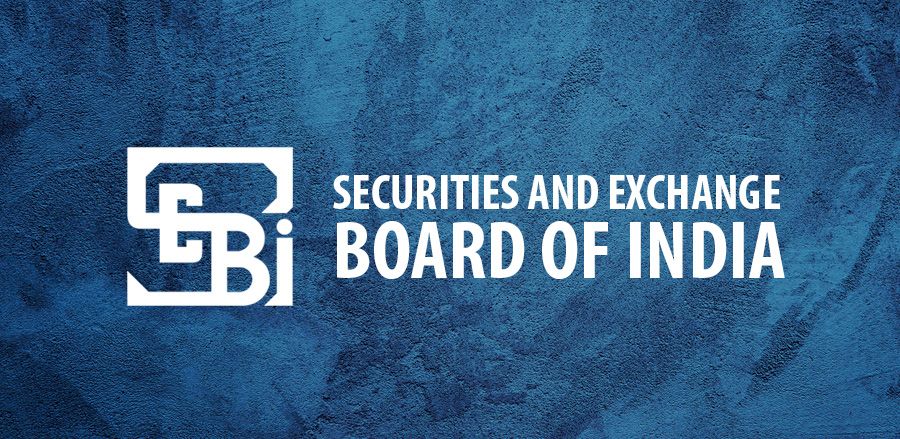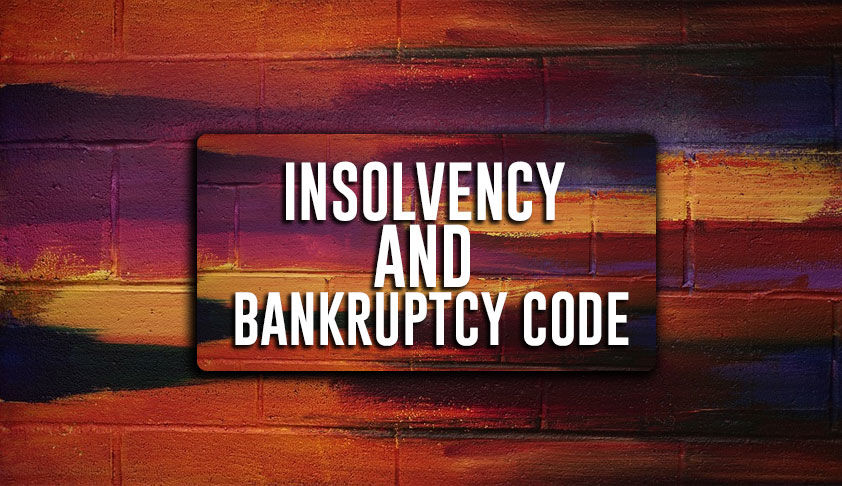SPACs in India: An Examination of the Rights of Retail Investors
By Malak Sheth, a third year student at NLU, Patiala. INTRODUCTION It is 2020 and Mia just received a doorstop-delivery of her medicines from the popular e-commerce giant Pharmeasy. Her experience of the convenience provided by the platform convinced her about the positive future prospects of the Company making her willing to invest in the…
Exercising the NCLT’s Intrinsic Authority to Revisit and Recall Insolvency Resolution Plans
By Aagman Srivastav, a first-year student at the Lloyd Law College, Greater Noida. BACKROUND A comprehensive legislative framework known as the Insolvency and Bankruptcy Code of 2016 (IBC) was implemented in India to address corporate bankruptcy through a structured system. It includes specific steps for recommending, assessing, selecting, and approving the Corporate Insolvency Resolution Plan…
Resale Price Maintenance – A Tale of E-India
By, Chirayu singh, 3rd year Gujarat National Law University, Gandhinagar (B.A. LL.B) & Shubhankar Sharan, 3rd year Gujarat National Law University, Gandhinagar (B.A. LL.B) ABSTRACT The Competition Act of 2002 (“Act”) provides for certain types of agreements, which may be deemed if result in Appreciable Adverse Effect. Precisely, Section 3 sub-section (4) of the Act identifies…
Resolving the Conundrum: Right of Redemption under Pre-Amendment Section 13(8) of the SARFAESI Act
By, Niloprovo Majumder, B.A.LL.B, 3rd Year, Jyotirmoy School of Law, University of Calcutta Introduction Recently, the Apex Court delivered a significant judgement that resolved a conundrum revolving around the debtor’s right of redemption under Section 13(8) of the SARFEASI Act, 2002, against that of the right of the auction purchaser. The core contention placed before…
SAFEGUARDING SENSITIVE DATA: NBFCS AND DATA PRIVACY IN INDIA
By, Rishi Khandelwal, Amity Law School, Amity University Uttar Pradesh, Lucknow Campus, BBA LLB 5th Year Introduction In the digital age, India’s financial sector has undergone a significant transformation, with Non-Banking Financial Companies (NBFCs) playing a pivotal role in this evolution. NBFCs offer a diverse range of financial services, including loans, insurance, and wealth management.…
Critical Analysis of Regulation 36B(6A) of the IBBI (CIRP) Regulations
By, Karthik Surya MR, Student of 4th year Law, School of Law, CHRIST (Deemed to be University), Bangalore Key Words: Introduction The whole idea of the corporate debtor being taken over in its entirety by the successful resolution applicant during the Corporate Insolvency Resolution Process seems to be deviating from, with the introduction of Regulation…
Apex Court’s nod: Group of Companies doctrine demystified
By Heeya Sharma & Poonam Sharma, third-year students (B.A. LLB) at Gujarat National Law University In a recent legal development, the apex court’s decision recognizes and adapts the “Group of Companies doctrine” in arbitration practices to suit the complex dynamics of the corporate landscape in India. This progressive judgment given by a five-judge constitution bench…
‘Shaping the Future’:SEBI’s Vision for Fractional Ownership in Real Estate Investments
By Aryan Soni, 3rd-year B.Com. LL.B at Gujarat National Law University In a landmark decision during its board meeting on November 25, 2023, the Securities Exchange Board of India (SEBI) approved substantial amendments to the SEBI (Real Estate Investment Trusts, Regulations, 2014). These amendments establish a regulatory framework for Micro, Small, and Medium Real Estate…
Revitalising India’s Corporate Bond Market: Analysing the CDMDF Framework
By, Tanishq Vijay Vargiya, 3rd year B.A L.L.B(Hons.) Student, Gujarat National Law University Keywords:- Corporate Bond, Debt Finance, Capital Markets INTRODUCTION On 27 July 2023, the SEBI released a Circular outlining the framework for Corporate Debt Market Development Fund (CDMDF). This initiative by SEBI came at a critical point for the corporate bond market, which…
Impact Of Dematerialization Of Shares Of Private Companies On Companies And Investors
By, Sachdev Sharma and Priyanshi Bainwala students of BA.LLB. (Hons.), The West Bengal National University of Juridical Sciences (WBNUJS), and B.B.A. LL.B. (Hons.) School of Law, Narsee Monjee Institute of Management Studies (NMIMS) Introduction India’s stock market has been more favoured among investors seeking to allocate their shares to short-term and long-term investment strategies. In…
Copyright Beatdown: Fair Use Battles in Hip-Hop and Electronic Music
By, Himanshu Mishra, BA.LLB. (HONS.) student at, Jamia Millia Islamia Abstract This research paper digs into the complex realm of sampling in hip-hop and electronic music, concentrating on the copyright hurdles and fair use concerns unique to these genres in the Indian legal framework. It investigates pertinent Indian copyright provisions, case laws, and challenges and…
CIRP Amendment Regulations 2023: The Awakening of Insolvency Resolution
By Divyansh Agrawal and Priyanshi Bainwala, B.A. LL.B. (Hons.) student, Maharashtra National Law University, Nagpur, and the B.B.A. LL.B. (Hons.), Narsee Monjee Institute of Management Studies (NMIMS), Bengaluru Introduction Pursuant to the authority conferred by section 240 of the Insolvency and Bankruptcy Code, 2016 (“Code”), the Insolvency and Bankruptcy Board of India (“IBBI”) promulgated the…
An Examination of the MCA Notification Mandating Dematerialization of Securities for Private Companies: Facilitating Clarity in Regulatory Compliance
By Kanan Shivhare & Sashank Saravanan, 3rd-year students, Gujarat National Law University Keywords: Securities Regulation, Companies Act On October 27th, the Ministry of Corporate Affairs (MCA) announced significant changes, primarily affecting private companies. The notable amendment to the Companies (Prospectus and Allotment of Securities) Second Amendment Rules, 2023 (PAS) issued by the MCA, now mandates…
Behind Closed Doors: What if Companies File for IPOs Confidentially?
By, Jayalakshmi Sankar, Student, BA.LLB.(Hons.) National Law Institute University, Bhopal Introduction The Issue of Capital and Disclosure Requirements Regulations, 2018 (‘ICDR Regulations’) was amended by SEBI to allow the option of pre-filing of offer documents for companies wishing to go for initial public offering (IPO). Pre-filing of offer document, Confidential IPO or Stealth IPO all…
Navigating Legal Crossroads: PMLA – IBC Nexus and Pathways to Resolution
By, Dwija Samir Vasavada, student of BBA LLB, III Year, GNLU The Genesis of the Conflict between PMLA and IBC It is presumed that the Parliament has enacted every statute with a specific intention and not to supersede one over the other. But in the realm of Indian financial laws, two prominent legislations have often…
Mergers And Acquisitions In A Banking Industry: A Comprehensive Analysis
By Kalash Chauhan, Amity Law School, Noida Abstract: In business environments worldwide, mergers and acquisitions have been used as an effective method to restructure and expand businesses. They are a powerful tool in management’s arsenal for maximizing efficiency through synergies and opportunities for expansion. A merger is the process of combining the operations of two…
Tax Compliance and Limited Scrutiny
By Ms. Ishita Sharma, a Final year B.B.A., LL.B. student & Mr. Kshitiz Saxena, a 4th year B.B.A., LL.B. student, Symbiosis Law School, NOIDA Introduction What is a Limited Scrutiny assessment? Limited Scrutiny assessment is a type of assessment conducted by the Income Tax Department under the Income Tax Act, of 1961. Limited Scrutiny assessment…
DIGITAL INDIA & CYBER SPACE GOVERNANCE: CONTEMPORARY REFORMS
By Milan Prajapati and Komal Jain, 4th Year Law Students at Institute of Law, Nirma University ABSTRACT India intends to be a world leader in technology and the innovation and technology ecosystem in the next decades; thus, the nation need new law that is current and in accordance with global best practises. As computers and the…
From Booz to Tobacco: Accepting Arbitrability of IPR Disputes/ Arbitrability of IPR Disputes: All Aboard the Booz Cruise
By Shivang Mishra, National Law University and Judicial Academy, Assam. Introduction Arbitration hailed as a highly effective and efficient means of resolving disputes, has ventured into a plethora of commercial disputes. As the Indian legislature and judiciary have facilitated pro-arbitration developments, perhaps arbitrability of disputes related to intellectual property rights (IPR) is one field where…
The Stakes Of India’s Engagement In The White Industries Claim: An Investment Arbitration Dispute
Pragyanshu Gautam, Hidayatullah National Law University, Raipur. In the past ten years, though, the international arbitration regime has been the subject of raised debate and controversy, particularly concerning investment arbitration, which has been enlarged globally (Sappideen 2015). Even now India is relatively nascent in the investment arbitration world hereinafter that first Bilateral Investment Treaties (“BITs”)…
The Zee-Sony Merger: Addressing The Corporate Governance Concerns
By Vismita Rathi, Gujarat National Law University, Gandhinagar, Gujarat. On December 22, 2021, after conducting mutual diligence for an exclusive period of 90 days, Zee Entertainment Enterprises Ltd. (ZEEL) and Sony Pictures Networks India Private Limited (SPNI) finalised their merger agreement to become the market leader in the Indian entertainment space. In this post, the…
Section 74 Of ICA And Non-Compete Clauses: Analysing Indian Court’s Perspective
By Varuni Agarwal, National Law University, Odisha. INTRODUCTION As per Section 74 of the Indian Contracts Act (“ICA”), the amount of damages being claimed by the party suffering the breach of the contract must be genuine in nature. In the recent case of Welspun Speciality Solutions Ltd. v. Oil and Natural Gas Corporation Ltd., the…
Critical Analysis Of The Pre-Packaged Insolvency Framework In India
By Ashwin Sasikumar and Ananya Shukla, Government Law College, Mumbai, and Chanakya National Law University, Patna (resp.) INTRODUCTION A Pre-Packaged Insolvency Resolution Process (“PPIRP”) envisions the debt resolution of a company in distress by way of an agreement between the existing owners/outside investors and secured creditors to negotiate the sale of company assets instead of…
Secured Creditor’s Dissent In An Approved Resolution Plan: Analyzing Its Power To Prevail
By Hetav Dave, Gujarat National Law University, Gandhinagar. Background In a recent pronouncement in India Resurgence ARC Pvt. Ltd. v. M/s Amit Metalinks Ltd. & Anr., the Hon’ble Supreme Court dealt with the scope of a secured creditor’s power to challenge an approved resolution plan claiming higher amount on the basis of security interest. The Hon’ble…
Mergers And Acquisition: Due- Diligence From An Esg Perspective
By Prince Pathak, Banaras Hindu University, Varanasi. M&A (Mergers and Acquisitions) transactions have evolved drastically in recent years across the world. Emerging issues like climate change and environmental imbalance have also impacted the M&A practices in India. Investors and shareholders across the globe are focusing on these issues lately, which is why they are now…
TRL | Introducing A New Resolution Plan At The Last Stage Possible
By Aditya Ladha, Trainee Associate, Wadiya Ghandy & Co., New Delhi. INTRODUCTION Theoretically, a resolution applicant cannot submit the resolution plan after the deadline prescribed by the Committee of Creditors (hereinafter, the “CoC”), inviting resolution plan from the applicant, has elapsed. When we look at the statute, it is very evident that a resolution plan…
Reduction In Promoter Lock-In And Principle Of Person-In-Control: An Analysis Of Sebi’s Reforms
By Aayush Mishra and Anshuman Arha , Himachal Pradesh National Law University, Shimla. I. Introduction As an implementation of its consultation paper rolled out in May 2021, the Securities and Exchange Board of India (SEBI, hereinafter), on 6th August, 2021, introduced certain reforms around the concept of ‘promoters’.[i] Two of the most remarkable of these…
Can Pleadings be Amended at any Stage Uunder the IBC?
By Varun Akar, Advocate, Delhi Bar Council. The Supreme Court in the Innoventive Industries case had observed that the second application filed by the Appellant during the continuation of the first application w.r.t. the CIRP is unjustified and cannot be admitted. The conclusion was drawn basing that the period of 14 days which is required…
How can Businesses contribute to achieving SDG 8?
By Harsh Dogra, Institute Of Law, Nirma University, Ahmedabad. This blog was adjudged as the runner-up of the 1st CCLS Blog Writing Competition. Businesses in today’s global market have a higher level of responsibility as they realize. It is unfeasible to think to achieve sustainable development without the contribution of global forces i.e. Businesses. They…
SDG 8 During The Covid-Era: India Has A Long Way To Go Ahead
By Gaurav Agrawal, Institute Of Law, Nirma University, Ahmedabad. This blog was adjudged as the winner of the 1st CCLS Blog Writing Competition. “Saving our planet, lifting people out of poverty, advancing economic growth- these are one and the same fight.”-Ban-Ki-Moon (Former U.N secretary-general) Sustainable Development Goal 8 (SDG 8) strives to “promote sustained growth,…
Indian Party At Liberty To Choose A Foreign Seat Of Arbitration: The Quandary Resolved.
Indian Party At Liberty To Choose A Foreign Seat Of Arbitration: The Quandary Resolved. By Indira Yadav and Kanishka Singh, Institute Of Law, Nirma University, Ahmedabad and Dharmashastra National Law University, Jabalpur respectively. The blog analyses the Supreme Court’s (‘SC’) decision in PASL Wind Solutions Pvt. Ltd. v GE Power Conversion India Pvt. Ltd.[1] (‘PASL’), which…
Exploring The Realm Of Network Effects As A Ground For Anti-Competitive Conduct In India
By Aniket Panchal and Mehar Kaur Arora, Gujarat National Law University, Gandhinagar. Introduction Network effects have ubiquitous influence in the realm of online markets all over the world. Between 1985 and 1995, various scholars made substantial contributions to the network effects phenomenon. Network effects can be defined as “the utility that a user derives from…
Bad Bank A Hope In The Dark: Alternate Method For Solving Stressed Assets Crisis
By Nikhil Hans and Saurabh Agrawal, Chanakya National Law University, Patna. Introduction. As the pandemic has hit the whole world adversely, it has affected not only human life but also the financial sector of the country. Since our country’s financial system is predominantly bank-based, the Non-Performing Assets (NPA) of banks significantly impact the country’s GDP.…
SPAC’s Future In India: Worth The Hype Or Not?
By Janvi Parihar And Chinmay Jain, Institute Of Law, Nirma University, Ahmedabad. The Western concept of ‘Special Purpose Acquisition Companies’ (SPAC), also known as ‘blank cheque companies’ or shell companies, has caught the attention of investors around the world. SPACs are primarily shell companies designed to take companies public without going through the lengthy traditional…
Interdigital Technology Corporation V. Xiaomi Corporation & Ors.: Anti-Enforcement Injunction Can Be Issued In Rare Circumstances
By Aritra Mitra, National Law University, Odisha. In the recent judgment of Interdigital Technology Corporation v. Xiaomi Corporation & Ors.[i], the Delhi High Court held that a court in a particular sovereign jurisdiction cannot injunct a party pursuing a case before a court in a different jurisdiction. But here, the Court went against its notion by holding…
SPAC: The Conundrum Around It
By Alivya Sahay, Chanakya National Law University, Patna The regime of International capital markets has witnessed the growing popularity of Special Purpose Acquisition Company (hereinafter, “SPAC”). They have witnessed growth and popularity in the western countries, especially in the United States and are now entering the Asian market and attracting investors and sponsors. The year…
The Lacuna In Merger Control Regime In India Vis-A-Vis Big Data
By Dhriti Bole, NMIMS School Of Law, Bengaluru. Introduction The merger control regime under the Indian Competition Act, 2002 (hereinafter referred as the “Act”) is sought on the principle of keeping a check on the concentration of economic power into the hands of players in an identified relevant market. Sections 5 & 6 of the…
Bharat Sanchar Nigam Ltd. & Anr. V. Nortel Networks India Pvt. Ltd.: Supreme Court Clarifies Limitation Period And Threshold For Appointment Of Arbitrators
By Aritra Mitra, National Law University, Odisha. In the recent judgment of Bharat Sanchar Nigam Limited v. Nortel Networks India Private Limited,[i] the Supreme Court took the opportunity to clarify the issue regarding the limitation period for filing an application under Section 11 of the Arbitration and Conciliation Act, 1996.[ii] It observed that the limitation…
HIGH COURT INTERVENTION IN ARBITRAL AWARDS: SUPREME COURT REITERATES INHERENT LACK OF JURISDICTION
By Aritra Mitra, National Law University, Odisha. Factual Matrix of The Case In the recent judgment of Surender Kumar Singhal v Arun Kumar Bhalotia[1], the petitioners were exhibited as parties to arbitration proceedings, which arose from a dispute existing between two brothers and their respective families for a deed of partition or family settlement. A…
THE SCOPE AND CLASSIFIED POWER OF DIRECTOR GENERAL ENCOMPASSED IN COMPETITION LAW
By Akshat Dahate, ILS Law College, pune. INTRODUCTION: The primary objective of the Competition Act is to safeguard the growth of the economy and make sure that there is fair competition in the market by eliminating unfair trade practices that contain the adverse effect on competition (AAEC). The Competition Act, inter alia, prohibits anti-competitive agreements…
TRL |THE ADANI-FPI TRAGEDY
By Maharshi Thakkar, Advocate, Gujarat High Court. The Freezing of Accounts- factual scenario The share prices of Adani Group Companies took a plunge as soon as the news flashed on 14 June, 2021 that National Securities Depository Limited (‘NSDL’) has frozen three accounts owned by Foreign Portfolio Investors (‘FPI’) that held significant shareholding into Adani…
CRITICAL ANALYSIS OF GATT PROVISIONS THAT HAVE BEEN BREACHED IN THE USA-CHINA TRADE WAR.
By Parth Singhal and Sanskriti Shrivastava, School Of Law, UPES, Dehradun. The trade war b/w the United States of America (Hereinafter referred as “U.S.A”) & China kicked off when the USA alleged China of having unfair trade practices as well as unfair trade tariff. Not only this, but the US also alleged theft of intellectual…
SUPREME COURT UPHOLDS THE CLEAN SLATE THEORY IN IBC: ONE STEP FORWARD & TWO STEPS BACK?
By Gauransh Gaur and Arunabh Rajan, Gujarat National Law University, Gandhinagar. Introduction Recently, the Supreme Court, in the case of Ghanashyam Mishra and Sons Private Limited vs. Edelweiss Asset Reconstruction Company Limited and Ors., has affirmed the Clean Slate theory in IBC. According to this theory, the creditors are barred from instituting the proceedings against…
TAX AND TRUISM: A TALE OF CADBURY’S TAX EVASION THEFT
By Diksha Dadu, 5th year law student at Amity Law School. Overview We are all well aware that when tax rates are excessively high, the human nature is not necessarily defensible but explainable, and considers tax evasion. It must not be termed as a defensible technique because in a country where tax rates are at…
TRL | UNVEILING THE NEW REFORMS- CORPORATE SOCIAL RESPONSIBILITY
By Aman Gupta, Legal Associate, Singhania and Partners LLP, New Delhi. INTRODUCTION The concept of Corporate Social Responsibility (“CSR”) is not a new concept in India. The concept was first introduced under the Companies Act, 1956 and initially contributing towards the CSR was voluntary and not strict. The concept was revamped under the new Companies…
IS INDIA READY FOR SPAC?
By Devansh Parekh and Aayush Jain, Government Law college (GLC), Mumbai. What is SPAC? Special Purpose Acquisition Company (“SPAC”) or ‘Blank Check’ companies have made listing for start-up and tech companies an easy process since it is faster and cheaper, especially during the ongoing COVID-19 pandemic. SPACs are typically backed by professional investors who raise…
CAN THE DUTY TO TAKE REASONABLE CARE BE WAIVED BY THE BAILOR?
By Aryan Birewar, symbiosis law school, Pune. Introduction The General Principle of “Uniform Standard of Care” says bailees need to take care of bailed goods as man of ordinary prudence. To secure the objective of bailment contract, this duty of bailee is highly important. Without liability, this standard of care will be violated and negligence…
EXPLICATING THE INTERPLAY OF ANTI-COMPETITIVE AGREEMENT WITH DATA PRIVACY
By Aman Kadri and Srishty Bajaj, Institute of Law, Nirma University, Ahmedabad. Introduction An anti-competitive agreement can be described as an arrangement[i] or understanding[ii] or action in concert,[iii] entered amongst competitors[iv] for preventing,[v] restricting[vi] or distorting[vii] competition.[viii] Such an agreement should not necessarily be formal or be reduced to writing.[ix] In the present era, an…
INTERPLAY BETWEEN PATENT AND TRADE SECRET: CAN THEY CO-EXIST?
By Muskan Saxena, School of Law, Jagran Lakecity University, Bhopal. Introduction A patent is a statutory right that confers exclusive ownership and usage upon the inventor. Whereas Trade Secret means information which is unique to a manufacturer, having commercial value entailing market advantage over competitors. And know-how implies practical knowledge or technique to produce something.…
UNIFIED SECURITIES CODE: A REMEDY TO THE PLIGHT OF REGULATORY OVERLAPS IN THE INDIAN SECURITIES MARKET
By Akshat Kothari and Karma Shah, Institute of Law, Nirma University, Ahmedabad and Gujarat National Law University, Gandhinagar (Resp.). Introduction ‘The best Government is that which governs the least.’ – John O’ Sullivan The Indian Finance Minister, Mrs. Nirmala Sitharaman, took this quote to her heart and following that proposed to bring about a single…
FRENEMY RELATIONSHIP BETWEEN INSOLVENCY AND BANKRUPTCY CODE AND INDIAN COMMERCIAL BANKS: FOCUSING IMPACT ON INDIAN ECONOMY
By Hardik Vyas and Shiwang Tripathi, National Law University and Judicial Academy, Assam and Institute of Chartered Accountants of India (resp.). There have been multifarious challenges faced by Indian organizations over the last few years. A huge rise in the number of debts, loans and non-performing assets (NPAs) being the main issue of concern putting…
THE FEASIBILITY OF THE RIGHT TO SUBROGATE UNDER INDIAN INSOLVENCY REGIME
By Jaydeep Manchikalapudi and Priyal Jain, Hidayatullah National Law University, Raipur. Insolvency and Bankruptcy Code, 2016 (“IBC”) is the much-awaited legislation that the credit market in the country anticipated. This Code consolidates laws relating to reorganisation and insolvency resolution for corporate persons, personal guarantors and individuals in a time bound manner. It is interesting to…
AMAZON OR RELIANCE – A FIGHT FOR THE CONTROL OF FUTURE RETAIL
By Kanishta Naithani, Symbiosis Law School, Pune. Introduction In the tussle between the richest man in the world, Jeff Bezos, and the richest man in India, Mukesh Ambani, lies the future of Kishore Biyani’s Future Retail. Future Retail controls major retail brands like – Big Bazar, Brand Factory, Easyday, etc. These are popular retail brands,…
TRAI VS CCI: A SOLUTION TO THE ONGOING TURF ISSUES?
By Neha Hegde, Symbiosos Law School. The Telecom Regulatory Authority of India act (TRAI), 1997 is established to protect and ensure the interest of the service providers while safeguarding the interest of consumers in the telecom sector. It further facilitates growth and efficiency in the telecommunication services by upholding fair competition in the market. The…
LIMITATION PERIOD FOR FILING APPLICATION UNDER SECTION 11 OF THE ARBITRATION AND CONCILIATION ACT, 1996
By Vishal Marakana and Devansh Jain, Institute of Law, Nirma University, Ahmedabad. Introduction Recently, in the matter of Bharat Sanchar Nigam Limited v. Nortel Networks India Limited,[i] The Supreme Court observed that filing of application under Section 11 of the Arbitration and Conciliation Act shall be determined by the Article 137 of the First Schedule…
CRITICAL ANALYSIS OF INDIAN APPROACH TOWARDS CRYPTOCURRENCY – SUGGESTIONS IN A DIGITIZED WORLD
By Mayank Barman, Department of Law, University of Calcutta, Kolkata. The “bumpy” Crypto road The journey of cryptocurrency in India has been topsy-turvy, to say the least. Prior to the 2018 Reserve Bank of India (“RBI”) circular[i] which barred the banking sector in India from providing their services to crypto-based firms in India, there was…
ROLE OF COMPETITION SCRUTINY IN THE INSOLVENCY RESOLUTION PROCESS- THE ROAD TRAVELLED AND THE ROAD AHEAD
By Raghavi R , Tamil Nadu National Law University, Navalurkottapattu. The proposal to allow a green channel approval for combinations under the Interim Resolution Plan was made in the report of the Competition Law review Committee, 2019[1]. Green channel is the automatic approval of combinations on the meeting of certain criteria. This paper seeks to…
EFFECTS OF AMENDMENT 2021 ON THE ARBITRAL LAWS OF INDIA
By Anshika Agarwal & Shubhi Singhal, Vivekananda Institute of Professional Studies, New Delhi and National Law Institute University, Bhopal (resp.). Abstract The Indian arbitration laws, recently observed a prominent deviance from their usual course vide the Arbitration and Conciliation (Amendment) Act, 2021. The following article sets forth the changing paradigms and the evolution of the…
ARBITRABILITY OF OPPRESSION AND MANAGEMENT DISPUTES: EXPLORING THE INDIAN SCENARIO
By Lakshya Chaudhary and Dolly Balana, Institute Of Law, Nirma University, Ahmedabad. ARBITRABLE DISPUTES The Arbitration and Conciliation Act, 1996 (the “Arbitration Act”) of India do not define the term ‘Arbitrability’. Although, the term arbitrable dispute has been defined in the landmark judgment of Booz Allen Hamilton v. SBI Home Finance Ltd. and Ors, this case…
IBC LIQUIDATION AND SCHEME OF SECTION 230: A STATUTORY CONTINUUM
By Rishi Dutt and Priya Dutt, students of Bharati Vidyapeeth New Law College and NALSAR University of Law (resp.) Supreme Court in the case of “Arun Kumar Jagatramka v Jindal Steel and Power Limited and Another”[i], determined that any person, who is ineligible under Section 29 A of the IBC, 2016 will be able to…
TAX ISSUE ARISING OUT OF OUTBOUND MERGER: AN INDIAN VIEW OF CROSS BORDER MERGER
By Namrata Singhal, Vivekananda Institute of Professional Studies (VIPS), New Delhi. INTRODUCTION: The concept of cross border mergers is the product of the lofty mobility in the economic activities across the territorial limit of the countries. It is important to understand that the integration of world economies has facilitated international trade and commerce. The thirst…
THE VALIDITY OF A “BLANK CHEQUE” UNDER THE NEGOTIABLE INSTRUMENTS ACT, 1881
By Harsh Patidar and Monish Raghuvanshi, National Law Institute University, Bhopal. On 10 February 2021, a three-judge bench of Supreme Court of India in M/s. Kalamani Tex & Anr v. P. Balasubramanian[i] held that the blank cheques will attract presumption under Section 139 of Negotiable Instruments Act, 1881[ii] (“NI Act”) if the accused has admitted his/her signatures on the…
ENFORCEABILITY OF NON-COMPETE CLAUSES: LEGAL POSITION IN INDIA
By Anushka Mehul Shah & Gaurang Mansinghka, Government Law College, Mumbai. Introduction. A non-compete clause / agreement, put simply, is a contract whereby an employee promises to abstain from entering into competition of any kind with the employer, sometimes in addition to abstaining from revealing proprietary information, trade secrets, or any other confidential information in…
REITS: A TOOL TO DEMOCRATIZE INVESTMENT IN REAL ESTATE SECTOR
By Astha Nahar, NMIMS Kirit P. Mehta School of Law, Mumbai Introduction In the Indian economy, Real Estate Investment Trusts (REITs) are an enormous and ever-growing market for the investors, something that is yet under-explored by India. The importance of REITs in the world economy can be seen through its vast size and the fact that…
M/S Global Mercantile Pvt. Ltd. v. Indo Unique Flame Ltd. & Ors: Upholding the spirit of Doctrine of Separability
By Misha Sharma and Arihant Jain, 4th year, Institute of Law, Nirma University. INTRODUCTION The three judge bench of Supreme Court in the case of M/S Global Mercantile Pvt. Ltd. v. Indo Unique Flame Ltd. & Ors. has recently held that arbitration clause contained in unstamped underlying contract, being an independent contract, is enforceable under…
PERSONAL GUARANTEE UNDER IBC- A CONTROVERSIAL FINANCIAL AFFAIR
By Ishan Agarwal, 4th year BBA LLB (Hons.),School of Law, Bennett University Introduction The issue of law of guarantee and the Insolvency and Bankruptcy Code, 2016 has been in the limelight in present times due to the various controversies it carries with it. It certainly requires clarity on various issues adjoining to it such as…
COMMENT ON INTERIM EBIXCASH ORDER: ONE OF THE FIRSTS BY DELHI HIGH COURT
By Gaurav Sandeep Karwa, 4th year BALLB student at WBNUJS, Kolkata The order passed by Justice Jayanth Nath of Delhi High Court on 8th May, 2019 is unique and first of its kind wherein an Indian Court has passed an order on the subject matter of “short selling” in the stock market. The major issue…
INCREASING THE LIMIT FOR CREEPING ACQUISITION THROUGH PREFERENTIAL ALLOTMENT: AN ANALYSIS
By Deepanshu Agarwal, University of Petroleum and Energy Studies, Dehradun. Introduction The COVID-19 outbreak has brutally hit the economy. The economic activity in April-June 2020 was recorded 23.9 per cent lower than what was in April-June 2019. Due to a sharp fall in the stock prices, investors are scared to channelize their savings. Therefore, capital…
REFLECTING UPON THE RULE OF REFLECTIVE LOSS
By Bhoomika Agarwal, Amity Law School, Delhi, GGSIPU In Sevilleja v. Marex Financial Ltd. (Sevilleja case), the seven- judge bench of the UK Supreme Court granted the relief of damages to a creditor against the director of a company. While doing so, the Court reflected upon the jurisprudence on the doctrine of reflective loss, which,…
USING AMAZON TO DEMYSTIFY COMPANIES AND THEIR LEGAL PERSONAS
By Pedro Dos Santos Marques, University of East Anglia, Norwich, UK. We have all heard of Amazon, their products and services. The media made us believe that Amazon’s ‘owner’ is Jeff Bezos. But what does it mean to actually own a company? Can an individual own a company? The short answer is no. Companies are…
REVISION OF IBC THRESHOLD: CRITICAL ANALYSIS AND ITS IMPLICATIONS
By Vijpreet Pal, 2nd year, National Law institute university, Bhopal. INTRODUCTION The Government of India (GOI) has announced various relief measures related to legal and regulatory issues and special economic programs in various sectors to counter the effects of COVID-19 on the economy. The threshold limit for commencement of Corporate Insolvency Resolution Process (CIRP) has…
RELAXATIONS IN RAISING EQUITY CAPITAL THROUGH THE INFRASTRUCTURE INVESTMENT TRUST ROUTE IN THE POST COVID PANDEMIC PERIOD
By Sakshi Mohan, 5th Year, BA. LL.B. (Hons.), Chanakya National Law University, Patna. The growth in the Infrastructure sector is one of the key indicators of economic development in a country. Earlier, the infrastructure sector was largely funded through the public exchequer, however, this limited the capital base available for further stimulus. Thus, the need…
CARO (COMPANIES AUDITOR‘S REPORT ORDER) 2020
By Amit Mutha, 2nd-year student, Bharti Vidyapeeth New Law College Pune. Abstract: The Ministry of Corporate Affairs (MCA) has released the CARO 2020 in association with the National Financial Reporting Authority (NFRA). It deals with the subject matter on which companies are required to report. As an aftereffect of IL&FS, DHFL & PMC Bank Crisis, CARO…
GAMMON INDIA V. NHAI: CURBING MULTIPLICITY OF ARBITRAL PROCEEDINGS
By Vedansh Batwara, 5th year student, School of Law, Christ University. The Delhi High Court in its judgement Gammon India Ltd & Anr. v. National Highways Authority of India, dated June 23, 2020, which was concerned with the petition challenging an arbitral award under Section 34 of the Arbitration and Conciliation Act, 1996 dealt with…
IBC AMENDMENT ORDINANCE, 2020- A PREEMPTIVE STEP OR HASTE LEGISLATION?
By Sanskar Modi, 2nd year student, National Law Institute University, Bhopal. INTRODUCTION Amid the nation-wide lockdown, a plethora of Ordinances have been promulgated in several fields by the President. In the same line, on 5th June 2020, the President promulgated the most awaited “The Insolvency and Bankruptcy Code (Amendment) Ordinance, 2020”[1] (hereafter “the Ordinance”). The…
TRL | PRIORITY OF SECURED CREDITOR VIS-A-VIS FIRST CHARGE OF STATE DUES: AN UNSOLVED CONUNDRUM
By Utkarsha Sharma, Advocate, Fiducia Legal. In 2016, the Securitisation and Reconstruction of Financial Assets and Enforcement of Security Interest Act, 2002 (“SARFAESI Act”) and Recovery of Debts Due to Banks and Financial Institutions Act, 1993 (“RDB Act”) were amended through the Enforcement of Security Interest and Recovery of Debts Laws and Miscellaneous Provisions (Amendment) Act,…
Remedy under Section 73 of the Indian Contract Act, 1872
By Harsh Garg, 3rd year student, Institute of Law, Nirma University. Indian Contract Act, 1872 defines Contract under section 2(h) as “an agreement enforceable by law”[i]. The term enforceable by law can be understood as lawful consideration and lawful purpose of the contract. The basic objective of the Act is to protect the rights and…
ROLES AND RESPONSIBILITIES OF AN AUDITOR IN CORPORATE GOVERNANCE
By Swastik Bisarya, 3rd year student, Institute of Law, Nirma University. Whenever someone talks about a company and its functioning, the role of an auditor is underestimated – whereas, the truth is that an auditor, whether internal or external, has an important role to play in the Corporate Governance of a company. This article aims to…
Analysing Supreme Court ruling in Sagufa Ahmed v. Upper Assam Plywood Products Pvt. Ltd: Whether the extension of limitation applies to condonation of delay?
By Ashuthosh V, 3rd year student, Institute of Law, Nirma University. The Supreme Court (SC), on 18th September 2020, in its judgement Sagufa Ahmed & Ors. v. Upper Assam Plywood Products Pvt. Ltd. & Ors., held that the extension of period up to which delay can be condoned is not the same as the extension of…
Impact of COVID-19 on Contracts and Force Majeure
By Injila Khan, 2nd year student, Institute of Law, Nirma University. The COVID-19 pandemic has wreaked havoc in every sector of the economy and has not failed to affect the area of contracts and contractual liabilities, among others. Be it contract of tenancy, construction contract or supply contracts, countless people have been driven to a point…
Battling the Google Tax 2.0
By Khushi Sethia, 4th year student, Institute of Law, Nirma University. Introduction As the country is adapting to the new normal it was only a matter of time that the traditional ‘brick and mortar’ underwent its biggest transformation. India, being one of the rapidly evolving markets, is currently home to some of the major e-commerce giants…
State Bank of India v M/s Metenere Limited: NCLAT rules that an ex-employee of the financial creditor cannot be appointed as the IRP
By Aashna Shrenik Shah, 3rd year student, Institute of Law, Nirma University. On 22nd May, 2020, a three-member bench of the National Company Law Appellate Tribunal (NCLAT), in the matter of State Bank of India v M/s Metenere Limited held that the substitution of the Interim Resolution Professional (IRP) by the Principal Bench of the National Company Law Tribunal,…
GENDER DIVERSITY ON BOARDS IN INDIA
By Prerna Mayea, 3rd year student, Institute of Law, Nirma University. Indian corporate sector has been experiencing a wave of change in corporate governance requirements which are being reviewed and revised very frequently. This process has led to the elimination of obsolete governance tools and addition of new tools. In line with the same efforts, the…
Equalisation Levy: A Growing Concern
By Abhirakshak Rajpal, 4th year student, Institute of Law, Nirma University. Digital Transactions and Taxation Conundrum The global phenomenon in transnational business practices with digital technologies as instrument is rampant all over the world, and India is no exception. The scope of digital transactions is increasing and therefore it poses a challenge to the national…
POSITION OF PERSONAL GUARANTOR UNDER IBC
By Palak Dheer, 5th year student, Institute of Law, Nirma University. As per the notification of central government dated 15th November 2019, from 1st December 2019 creditors can now initiate insolvency proceedings against a personal guarantor of the corporate debtor, effectively bringing in force the part III of IBC dealing with the insolvency and bankruptcy of individuals…
Rights of unregistered partnership firm vis-a-vis IBC
By Varun Akar, 5th year student, Institute of Law, Nirma University. Insolvency and Bankruptcy Code, 2016 (hereinafter referred to as IBC or Code) was enacted to consolidate the laws relating to reorganisation and insolvency in India. Its objective is to maximise the value of the assets of the corporate debtor which might be a corporate person,…
IMPACT OF IBC (AMENDMENT) ORDINANCE 2020 ON BANKERS
By Khyati Sharma, 5th year student, Institute of Law, Nirma University. As every person engaged in business activities was aiming to expand their horizons of profit-making, the economy of the whole world had to bear the brunt of COVID-19 crisis. The stock exchanges worldwide were hit so hard that the people who invested money had to…


